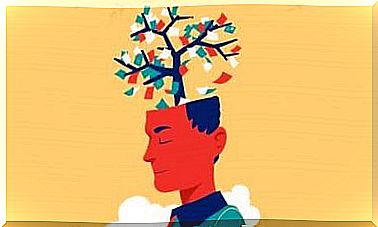5 Keys To Training Mental Flexibility

Mental flexibility relates to the brain’s ability to adapt to unexpected or changing situations. This ability is very useful when our usual thinking or behavior does not respond adequately to a new context. Hence the importance of knowing some keys to training mental flexibility.
Mental flexibility is also known as cognitive flexibility because it is directly related to learning and experience. Likewise, it is associated with how we relate to others in healthy ways. Let’s take a closer look at the subject.
The benefits of mental flexibility
Mental flexibility brings many benefits and the most important of these is the ability to adapt quickly to change. This allows more alternatives to be found in performing tasks or solving problems.
It also helps develop a higher level of tolerance. It opens the mind so that it perceives in a different way the different dimensions of the same reality.
This motivates to understand errors more acutely. They are no longer seen as a frustrating situation, but as a situation with potential for improvement in the area concerned. Empathy towards others also expands, in order to reach mutually beneficial agreements.
These processes are essential for achieving good results in school and at work, as well as in life in general. Indeed, they offer the possibility of optimizing our plans, formulating objectives and monitoring actions to correct them if necessary.

The keys to training mental flexibility
How to train and develop mental flexibility? It is a process of changing perspective. Certain actions are relevant to stimulate this change. Here are a few.
1. Learn to observe
One of the most important keys to training mental flexibility is learning to observe. This ability, like so many others, can only be learned by exercising it and relies on the ability to recognize details.
It is a great tool of sensitivity to all that surrounds us, which strengthens the faculty of analysis and identification of contexts. It also fulfills a liberating function when the act of observing results in contemplation, which also provides a state of relaxation and pacification.
2. Be rebellious
Rebellion is behavior characterized by challenging the established and not passively following models of authority. It can embody both positive and negative goals and stem from healthy or reactive motivations. In its positive side, this is another key to training mental flexibility.
Rebellion is not about going against everything, but opening the door to what is new or different in order to break away from monotony and try new realities. This necessarily implies starting with an analysis of reality and detecting the possibilities for change that it entails.
3. Do mental exercises
Mental exercises are also one of the keys to training mental flexibility, especially those that involve some challenge. These pose problems or questions that do not have obvious solutions; in the process of finding the solution or the answer, flexibility is stimulated.
Mental exercises therefore offer the possibility of developing skills and increase the probability of finding several answers to the same situation. In addition, the search for possible solutions promotes self-confidence and a sense of accomplishment.
4. Develop empathy
Empathy is the ability of a human being to perceive another human being as an equal. It is recognizing and validating the thoughts and emotions of the other, even if they are different from your own. In other words, it is putting yourself in the other’s shoes; so this is another of the keys to training mental flexibility.
Empathy is one of the most important traits when building social bonds. It makes you want to listen, assist and understand points of view that are different from our own. It also promotes openness to dialogue, the space par excellence where it is possible to find aspects common to the other.

5. Be creative
Creative pursuits are a great way to broaden perspectives, innovate, and overcome rigidity. Creativity is born when it is possible to see things from a new perspective. This is why it is one of the keys to training mental flexibility.
Creativity gives what we do a personal imprint that allows us to be original. It’s about finding different ways of doing the same thing or devising new solutions to old problems, which is invigorating and very empowering.
Mental flexibility is not so much an ability, but an attitude. As we have seen, it is possible to train and develop it. What does it bring us in the end? It is a very valuable tool to adapt to different types of situations and take advantage of them.










